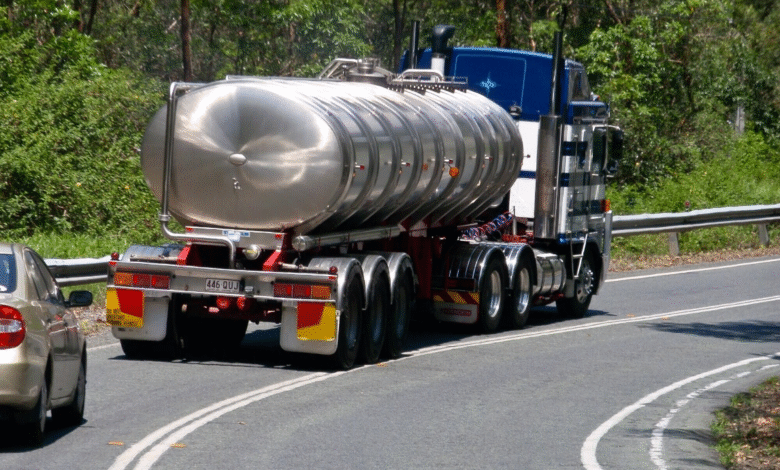Guide to Renting a Water Truck for Projects and Events

Getting enough water for a project or event can be hard. Renting a water truck makes it easier and faster. Trucks can handle construction, landscaping, dust control, or outdoor events.
They save time and reduce stress compared to other methods. Renting costs less than buying a truck for short-term use. You get modern equipment without worrying about maintenance.
If you need water for your project, read on to learn how to rent a water truck.
Assess Your Water Needs
Understanding how much water you require is the first step. Consider the size of the area you need to cover and the duration of use. Construction sites may need continuous water for dust control.
Landscaping projects often require precise amounts for plants or lawns. Event setups need water for cooling or cleaning purposes. Knowing your water volume helps you choose the right tank capacity.
Renting a water truck with the correct size prevents repeated trips. It also ensures efficiency and avoids extra costs. Plan carefully to match the truck to your project requirements.
Determine the Truck Size
Water trucks come in various sizes to meet different needs. Smaller trucks are easier to maneuver in tight spaces. Larger trucks are better for long-term projects or high-volume water delivery.
Tank size affects how often you need to refill. Consider the type of terrain the truck will operate on. A larger tank may require stronger support equipment. Check local regulations for maximum truck size limits.
Match the size to both the project and access routes. Choosing the right size ensures smooth operation and safety.
Check Equipment Availability
Not all rental companies have every truck type available at all times. Confirm availability before planning your project dates. Ask about different tank capacities and spray options. Some trucks come with hoses or pumps included.
Confirm if attachments meet your specific needs. Availability affects scheduling and project timelines. Booking in advance can secure the truck for your project. Always verify the rental terms and delivery options. Early planning prevents last-minute delays and project disruptions.
Understand Rental Costs
Rental costs vary depending on truck size and rental duration. Daily, weekly, or monthly rates may be offered. Additional charges may apply for delivery or pickup. Fuel costs might be separate from rental fees.
Ask about insurance or liability coverage. Some rentals require deposits or proof of identification. Comparing costs from different companies can save money. Make sure to get a clear quote before confirming. Understanding costs upfront prevents surprises during the project.
Consider Delivery and Pickup Options
Water trucks may be delivered to your site or picked up by you. Delivery saves time and effort, especially for remote locations. Pickup can reduce delivery fees but requires transport capacity.
Ask if the company provides setup or training for operation. Confirm timing to avoid delays in your project schedule. Consider the truck’s size when planning access routes.
Some sites may need special permits for large trucks. Clarifying delivery and pickup terms ensures smooth logistics. Efficient handling keeps your project on track.
Inspect the Truck
Before using the truck, inspect it carefully. Check for leaks or damage to the tank. Test hoses, pumps, and spray nozzles. Ensure tires are in good condition for safe driving. Verify that controls are functional and easy to operate.
Report any issues to the rental company immediately. A proper inspection prevents accidents and service interruptions. Keep a checklist for consistent inspections. Safety and reliability are essential for successful use.
Review Safety Guidelines
Operating a water truck requires following safety rules. Always wear protective gear if necessary. Ensure the area is clear of people and obstacles before spraying. Do not exceed speed limits when carrying water.
Avoid steep or unstable terrain without guidance. Know how to shut off equipment in emergencies. Follow the rental company’s safety instructions carefully. Training can reduce the risks of injury or damage. Safe operation ensures a smooth project experience.
Plan Water Delivery Routes
Efficiency depends on planning the route for water delivery. Identify where water is needed most. Avoid obstacles or restricted areas that may slow the truck. Factor in distance and refill points if necessary.
Coordinate timing to meet project demands. Clear routes reduce travel time and fuel consumption. Make contingency plans for unexpected delays. Good planning keeps your schedule consistent. Efficient routing prevents wasted time and resources.
Understand Water Quality Requirements
Some projects need clean water for specific purposes. Construction dust control may not need potable water. Landscaping or food-related events may require higher water quality.
Confirm the water source with the rental company. Using the wrong type can damage equipment or compromise results. Ask about filtration or additives if needed.
Proper water quality ensures the project runs smoothly. Avoid surprises by clarifying requirements beforehand. Quality water protects both the project and the truck.
Check Legal and Environmental Regulations
Certain areas have rules about water use and truck operation. Check permits for large vehicles in urban zones. Some locations restrict water discharge into streets or drains.
Environmental regulations may apply to spraying or runoff. Understand local laws before renting. Non-compliance can result in fines or project delays. Ask the rental company for guidance if needed.
Being informed avoids legal complications. Follow regulations to protect the environment and your project.
Learn Operational Tips
Operating a water truck efficiently requires some knowledge. Start with a practice run if possible. Learn how to adjust spray patterns and pressure. Monitor water levels to prevent running dry.
Keep hoses organized to avoid tangling. Follow recommended maintenance during use. Take breaks to prevent fatigue while operating. Observe how the truck responds on different surfaces. Proper handling improves both performance and safety.
Plan for Maintenance and Refills
Even rented trucks need attention during use. Schedule regular refills to prevent downtime. Check for leaks or loose fittings during operation. Clean nozzles or hoses if clogs occur. Keep an eye on fuel levels if applicable.
Some rentals include maintenance instructions. Reporting issues quickly can prevent bigger problems. Maintaining the truck ensures consistent performance. If your project requires flexibility and reliability, it is best to rent a water truck that meets your needs.
Consider Renting a Water Truck for Projects and Events
Renting a water truck makes handling water for projects or events easier. Know your needs and choose the right truck. Plan routes and check safety rules. Follow maintenance and refill schedules.
Make sure water quality and legal rules are met. Communicate clearly with the rental company. Proper planning keeps your project running smoothly.
Should you wish to read more, visit our blog! NewsDipper.co.uk


